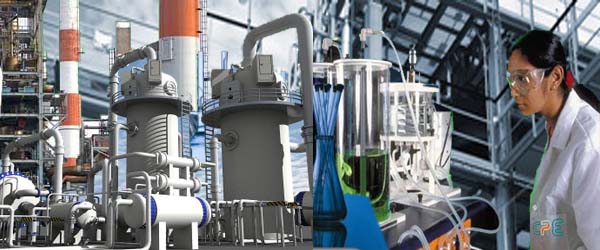
Chemical and Process Engineering is the profession in which knowledge of Mathematics, Chemistry, Physics and other Natural Sciences gained by study, experience and practice is applied with judgment to develop economical ways of using materials and energy for the benefit of mankind. It's true that Chemical Engineers are comfortable with Chemistry, but they do much more with this knowledge than just make chemicals.
More typically, they turn raw materials into valuable products. The necessary skills encompass all aspects of design, testing, scale-up, operation, control, and optimization. Hence this requires a detailed understanding of the various "unit operations", such as Distillation, Mixing, and Biological Processes that make these conversions possible.
Chemical Engineering science utilizes mass, momentum, and energy transfers along with thermodynamics and chemical kinetics to analyse and improve these unit operations. The breadth of scientific and technical knowledge inherent in the profession has caused some to describe the Chemical Engineer as the "Universal Engineer".
There are a countless number of industries where chemical engineering is used in. Examples are, petrochemical, mineral processing, advanced material, food, pharmaceutical, biotechnological industries, polymer industries and ceramic industries. Chemical engineers work closely with fellow engineering disciplines such as mechanical, electrical and electronic engineers as well as Civil and materials science engineers.
It would be correct to say that the term Chemical in Chemical and process engineering refers more towards the knowledge and experience in terms of the applied sciences whereas process engineering comprises of the designing, operating, maintaining and optimising of the processes that convert raw materials into finished goods.
Together, the knowledge of applied sciences and process engineering forms the core of Chemical and Process engineering.
